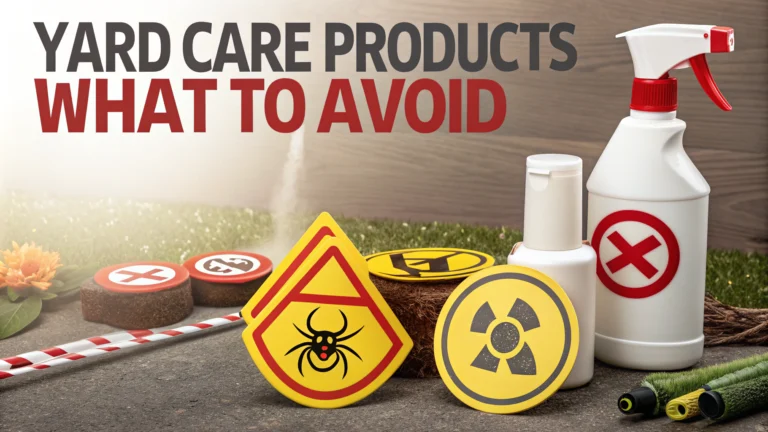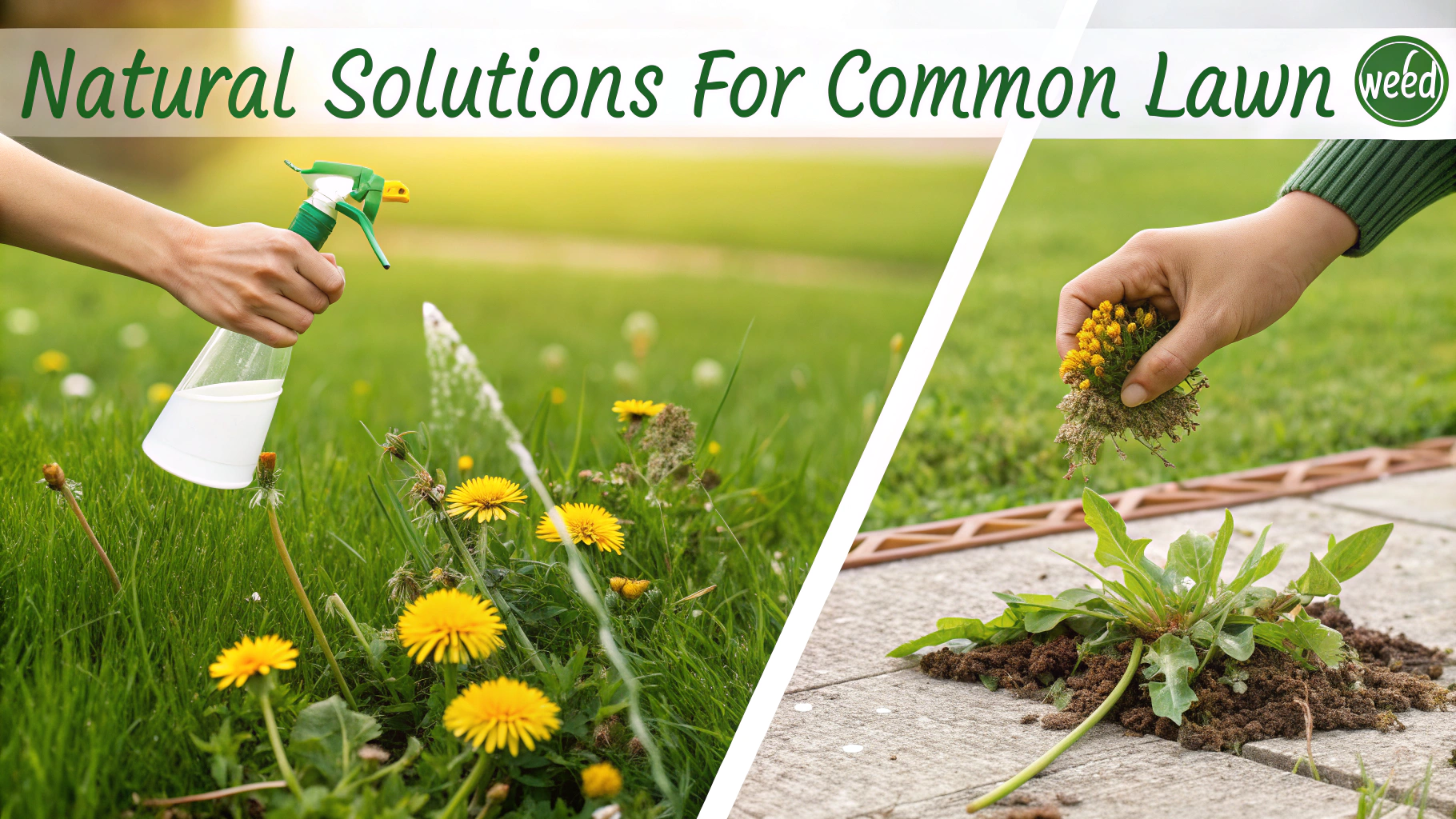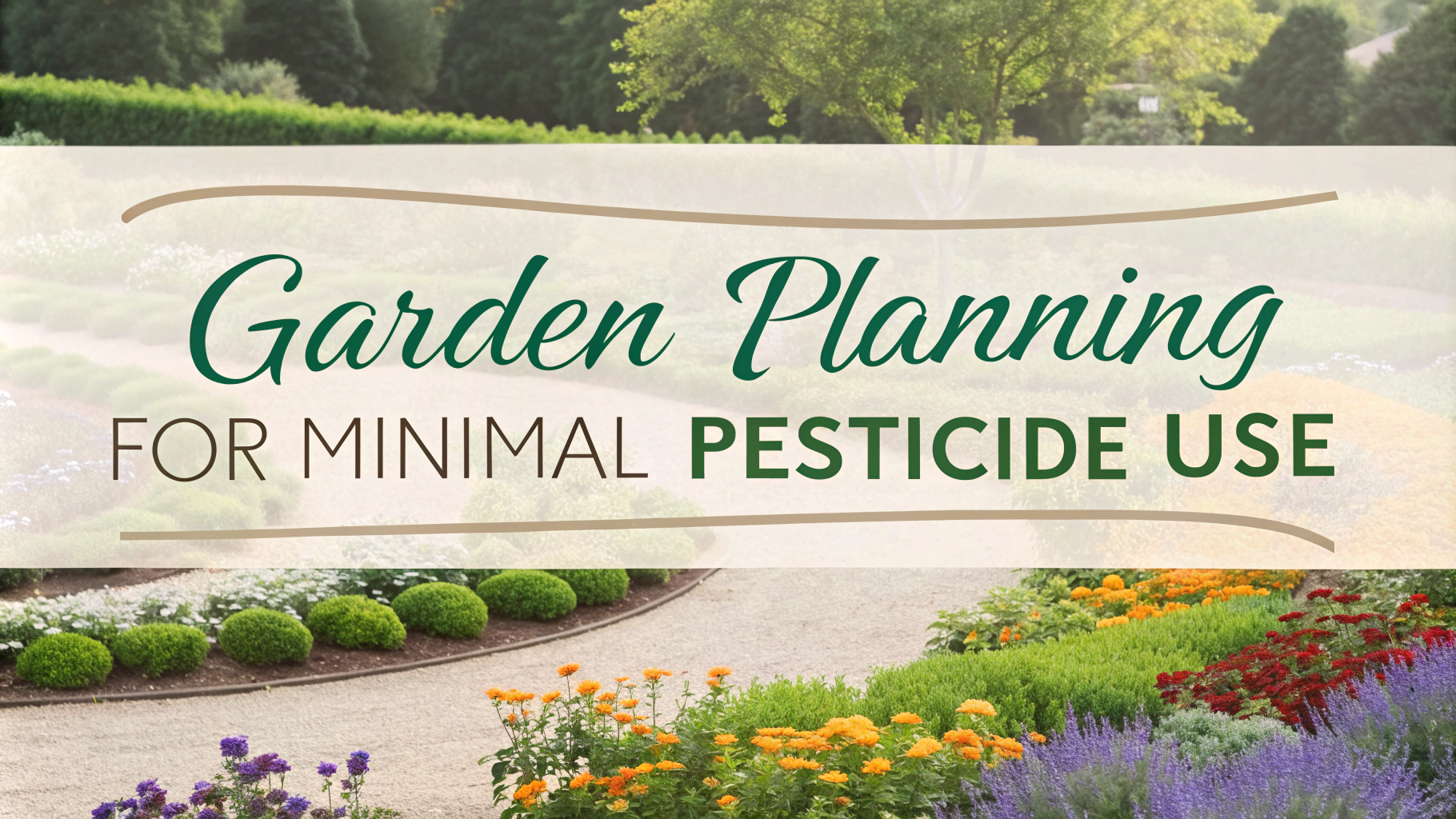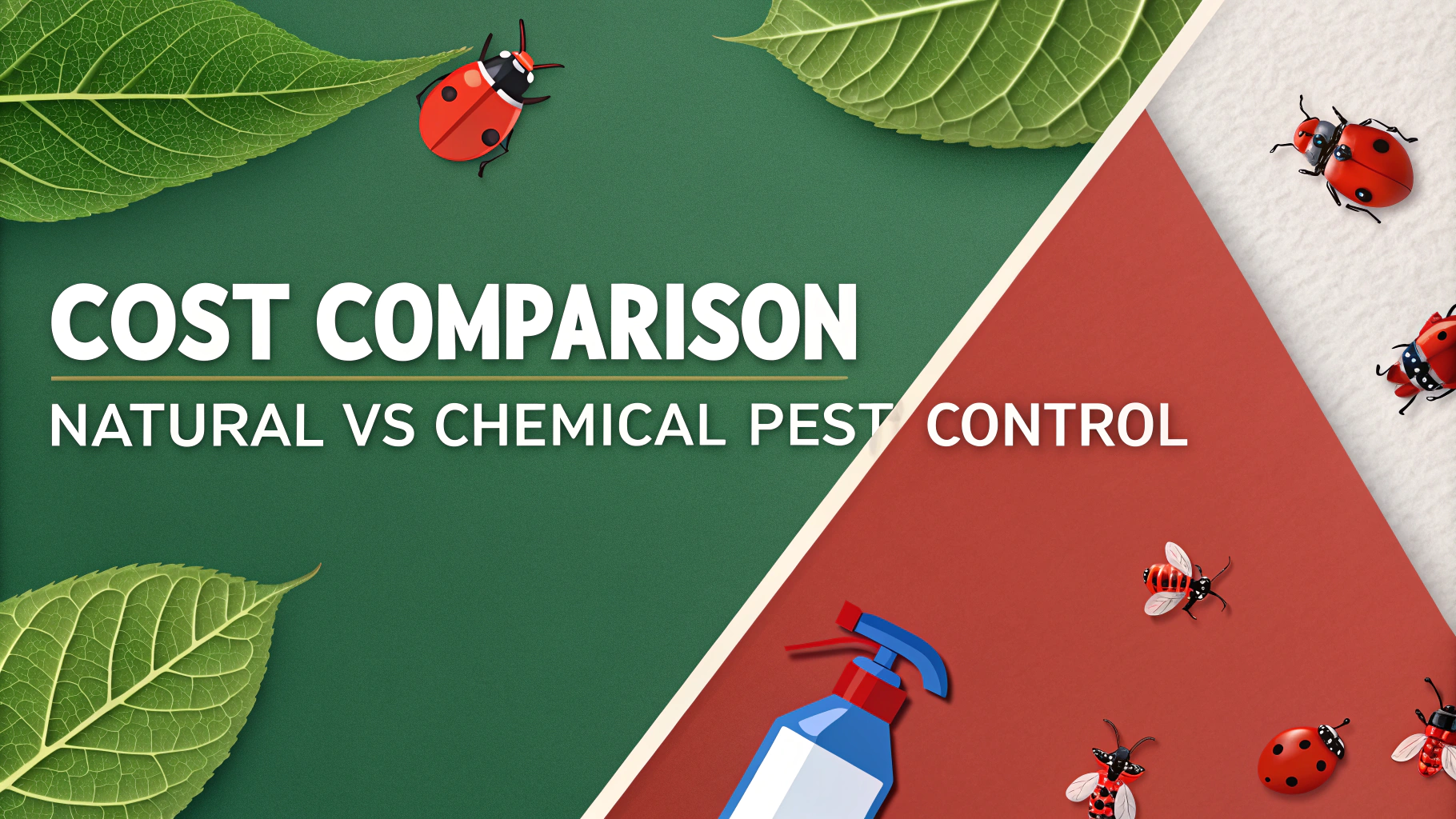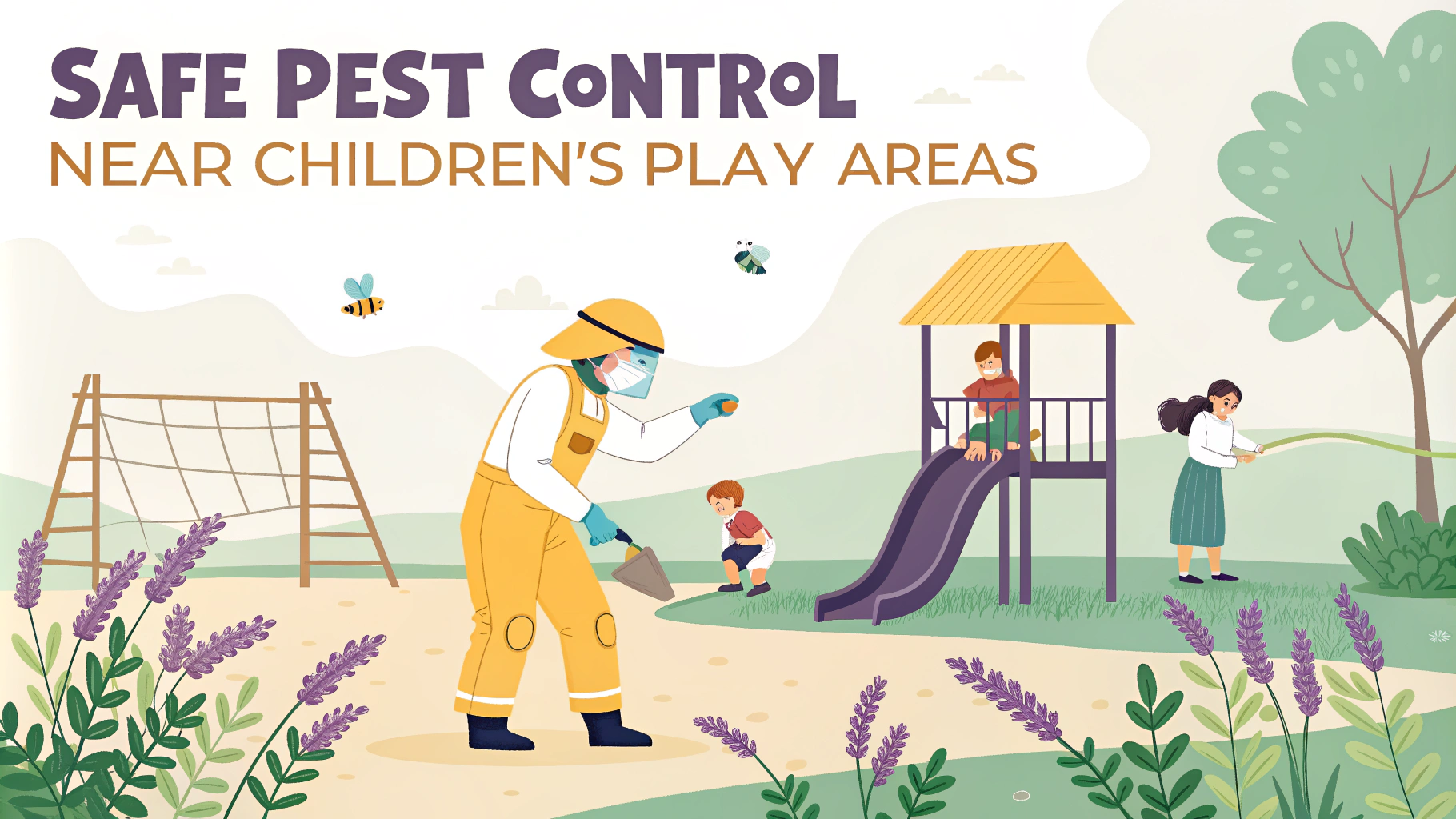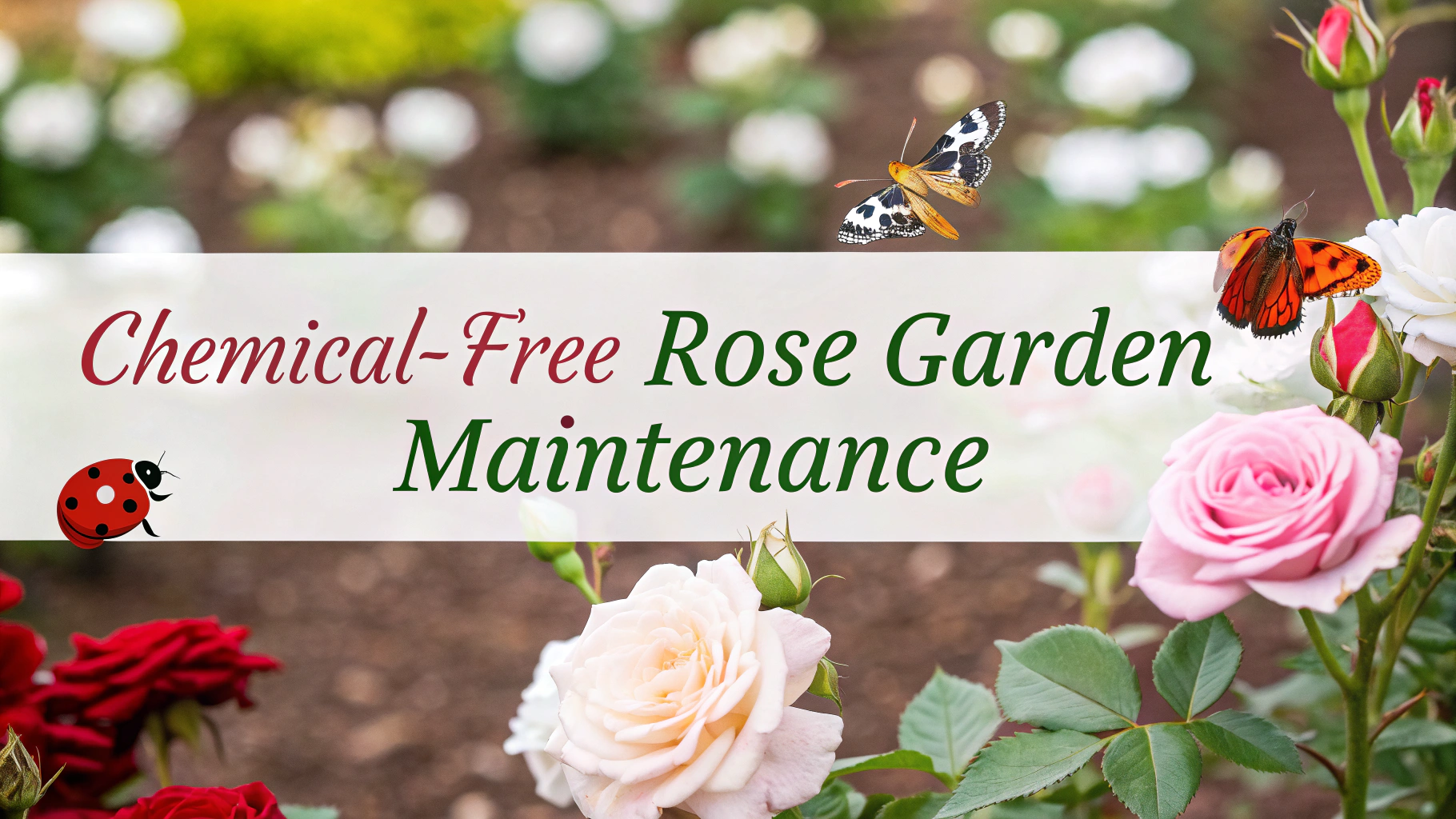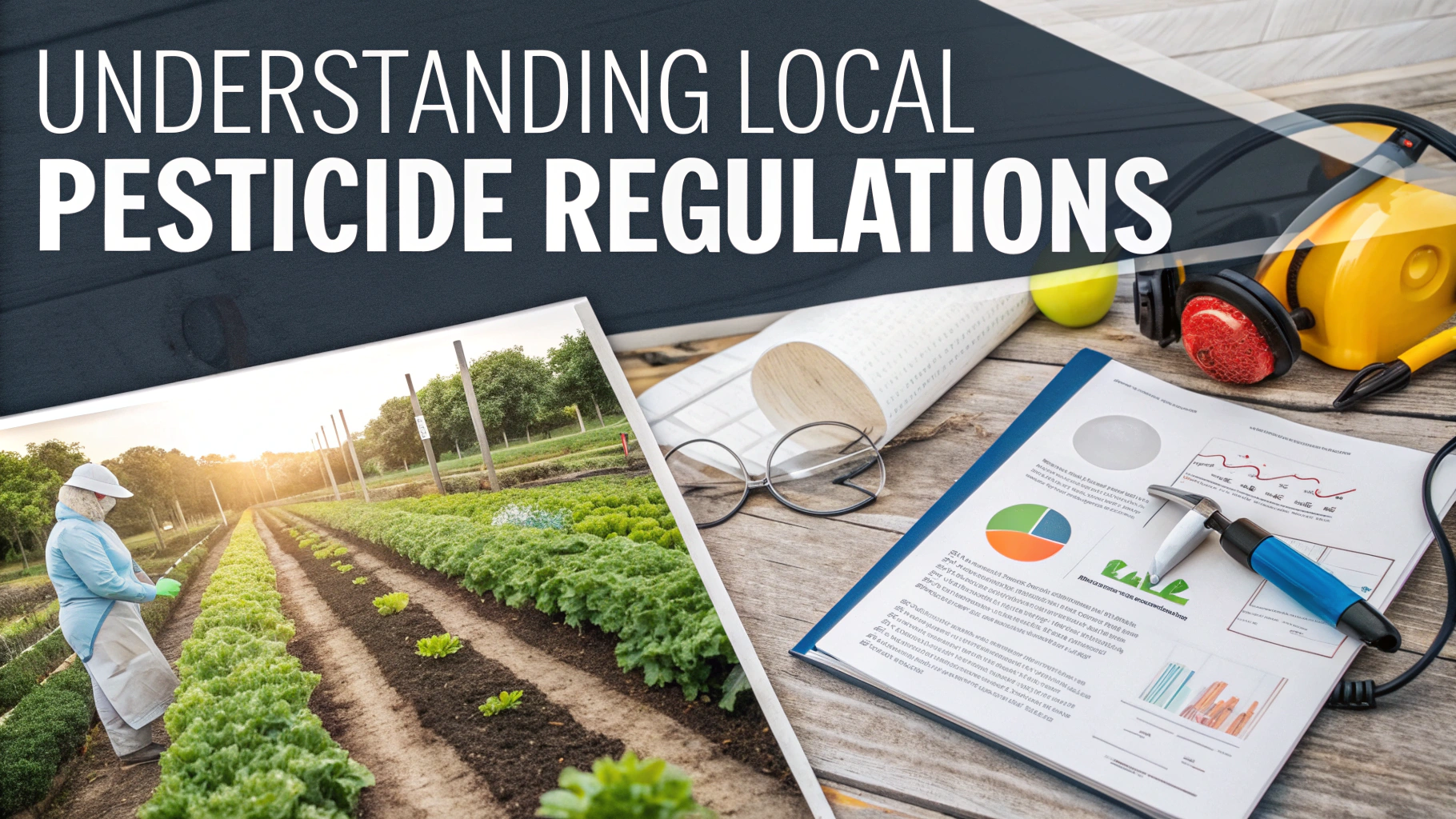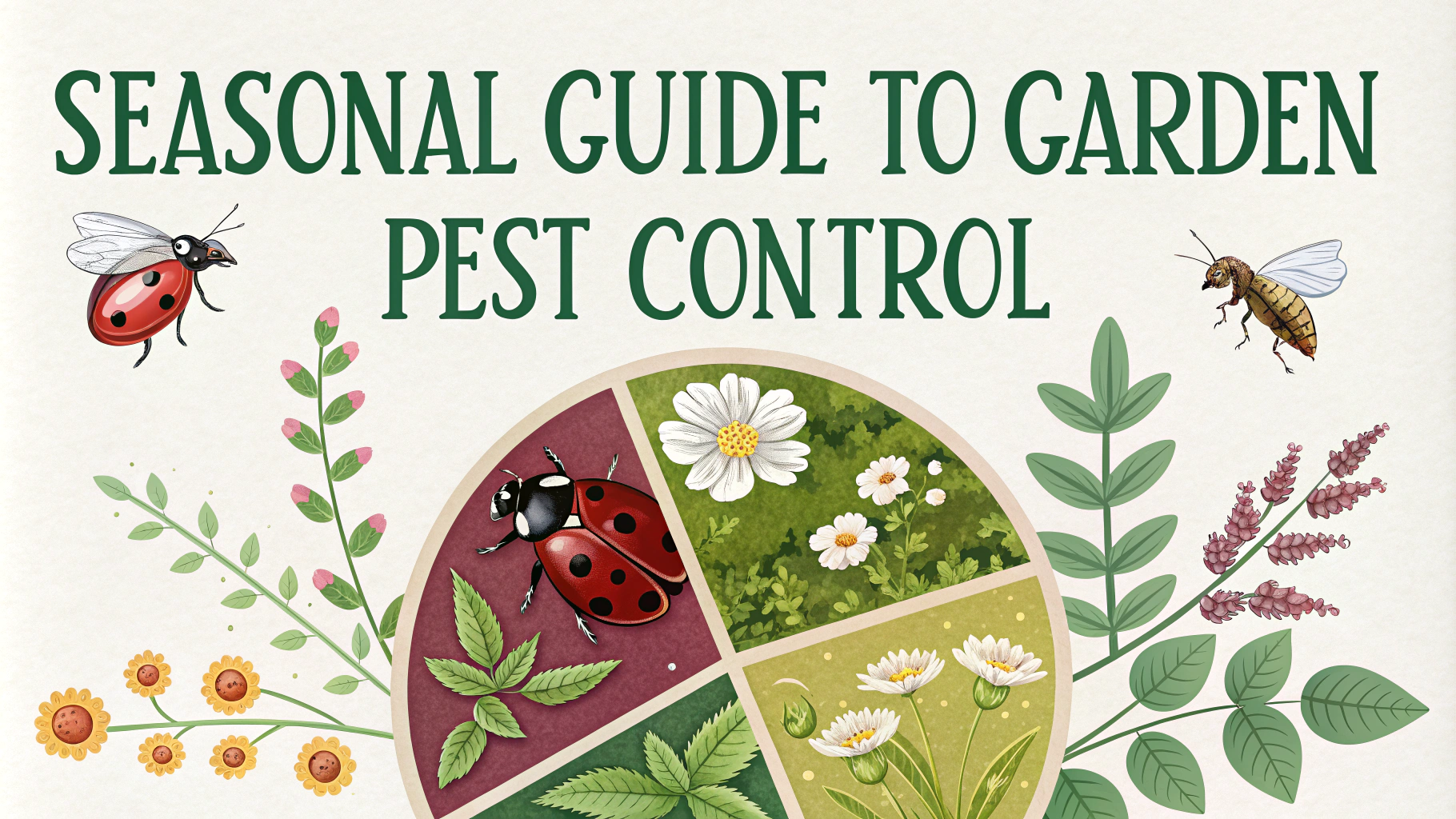Making smart choices about yard care products helps protect your family’s health and the environment.
Chemical pesticides pose serious risks to children, pets, beneficial insects, and local wildlife.
Common Pesticides to Avoid
- Glyphosate (Roundup) – Linked to cancer and environmental damage
- 2,4-D – Associated with hormone disruption and pet illness
- Carbaryl – Toxic to bees and other beneficial insects
- Malathion – Harmful to birds and aquatic life
Safer Alternatives for Common Garden Problems
| Issue | Natural Solution |
|---|---|
| Weeds | Mulch, hand pulling, corn gluten meal |
| Insects | Neem oil, insecticidal soap, beneficial insects |
| Plant diseases | Copper soap, proper plant spacing, resistant varieties |
Prevention Tips
- Build healthy soil through composting
- Choose native plants adapted to your area
- Practice crop rotation in vegetable gardens
- Maintain proper watering schedules
- Remove diseased plant material promptly
For specific pest management advice, contact your local cooperative extension office or visit Beyond Pesticides.
Warning Signs of Pesticide Exposure
- Headaches or dizziness
- Skin rashes or irritation
- Nausea or vomiting
- Difficulty breathing
If exposure occurs, call Poison Control immediately at 1-800-222-1222.
Environmental Impact
- Pesticides can contaminate groundwater and local waterways
- Chemical runoff affects fish and aquatic ecosystems
- Residues persist in soil for months or years
- Beneficial insects like bees and butterflies are harmed
Keep records of any products used and store remaining chemicals in original containers out of reach of children and pets.
Safe Storage and Disposal
- Store products in original containers only
- Keep in locked cabinet away from food items
- Maintain storage temperatures between 40-90°F
- Never transfer chemicals to food containers
- Check local hazardous waste disposal options
Record Keeping
Document the following for all yard treatments:
- Product name and active ingredients
- Application date and location
- Weather conditions during application
- Results and observations
- Any adverse reactions noted
Seasonal Maintenance
| Season | Natural Care Tasks |
|---|---|
| Spring | Soil testing, composting, mulching |
| Summer | Deep watering, organic fertilizing, hand weeding |
| Fall | Leaf composting, cover crop planting |
| Winter | Garden planning, tool maintenance, soil amendment |
Conclusion
Natural yard care practices protect health and environment while maintaining beautiful landscapes. Success requires planning, prevention, and patience. Start with small changes and gradually transition to completely chemical-free methods. Your local extension office can provide region-specific guidance for natural solutions.
Remember: A healthy garden ecosystem naturally resists pests and diseases, reducing or eliminating the need for chemical interventions.
FAQs
- What are the most harmful pesticides commonly found in yard care products?
The most harmful pesticides include organophosphates, carbamates, and synthetic pyrethroids. Glyphosate-based herbicides, organochlorines, and neonicotinoids are also particularly concerning due to their persistence in the environment and potential health risks. - How do pesticides impact beneficial insects and pollinators?
Pesticides, especially neonicotinoids, can kill beneficial insects like bees, butterflies, and ladybugs. They disrupt pollination cycles, impact honey bee colonies, and can reduce biodiversity in your garden ecosystem. - What are the health risks associated with common yard pesticides?
Common health risks include respiratory problems, skin irritation, neurological issues, hormone disruption, and potential links to certain cancers. Children and pets are particularly vulnerable to pesticide exposure. - How long do pesticides remain active in soil?
Pesticide persistence varies greatly. Some break down within days, while others can remain active for months or years. Organochlorine pesticides are particularly persistent, potentially remaining in soil for decades. - What pesticide alternatives are safe for vegetable gardens?
Safe alternatives include neem oil, insecticidal soaps, diatomaceous earth, companion planting, and beneficial insects like ladybugs and praying mantises. - How do synthetic pesticides contaminate water sources?
Pesticides can leach into groundwater, run off into streams and rivers during rain, and contaminate aquifers through soil penetration. This affects drinking water quality and aquatic ecosystems. - Which pesticide ingredients should be absolutely avoided around pets?
Avoid products containing organophosphates, carbamates, metaldehyde (in slug bait), and 2,4-D. These chemicals can cause severe illness or death in pets, even in small quantities. - What’s the proper protective gear needed when handling any pesticides?
Essential protective gear includes chemical-resistant gloves, long sleeves and pants, closed-toe shoes, eye protection, and an N95 mask or respirator designed for pesticide use. - How can pesticides affect local wildlife beyond insects?
Pesticides can poison birds, small mammals, amphibians, and reptiles directly through contact or indirectly through contaminated food sources. They also reduce prey populations and can cause reproductive problems in wildlife. - What are signs of pesticide poisoning in humans?
Common signs include headache, dizziness, nausea, muscle weakness, difficulty breathing, excessive sweating, and skin or eye irritation. Severe cases may include confusion, seizures, and loss of consciousness.
